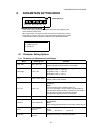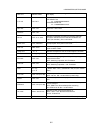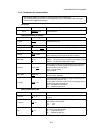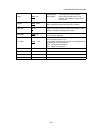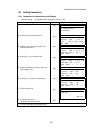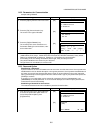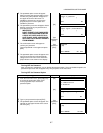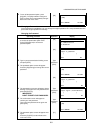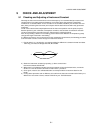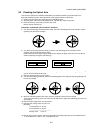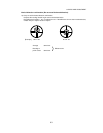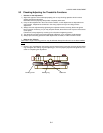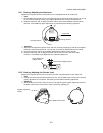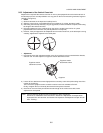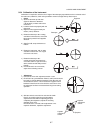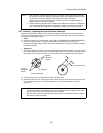
9-1
9 CHECK AND ADJUSTMENT
9 CHECK AND ADJUSTMENT
9.1 Checking and Adjusting of Instrument Constant
Normally, the instrument constant does not have discrepancy. It is recommended you measure and
compare with an accurately measured distance at a location where the precision is specifically
monitored on a consistent basis. If such a location is not available, establish your own base line over
20m (when purchasing the instrument) and compare with the data measured with newly purchased
instrument.
In both cases note that the setup displacement of the instrument position over the point, the prism,
baseline precision, poor collimation, atmospheric correction, and correction for refraction and earth
curvature determine the inspection precision. Please keep in mind these points.
Also, when providing a base line in a building, please note that the difference in temperature greatly
changes the length measured in the building.
If a difference of 5mm or over is the result from the comparative measurement, the following procedure
as shown below could be used to change the instrument constant.
1) Provide point C on a straight line, connecting straight line AB which is almost horizontal and about
100m long, and measure straight lines AB, AC and BC.
2) Obtain the instrument constant by repeating 1) above several times.
Instrument constant=AC+BC-AB
3) When there is error between written instrument constant value and calculated value, review the
Section 9.7 “How to Set the Instrument Constant Value” procedure.
4) Once again, measure at a calibrated baseline and compare with the instrument base line the
length.
5) If using above procedure and no difference is found from the instrument constant at the factory or a
difference of over 5mm is found, contact TOPCON or your TOPCON dealer.
A
C
B



